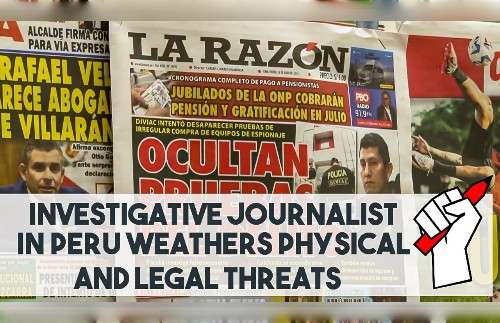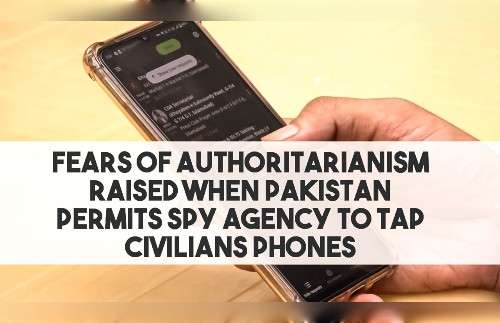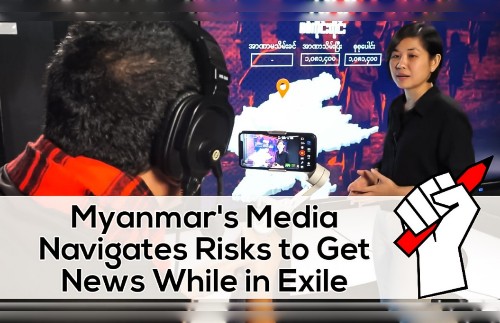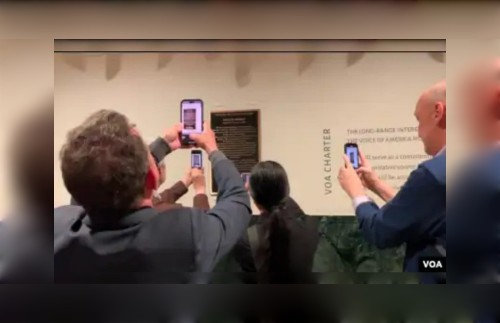The move comes as a former liberal editor at Caijing Magazine is detained for ‘defaming heroes and martyrs.’
By Cheng Yut Yiu, Qiao Long and Shum Yin Hang

The ruling Chinese Communist Party (CCP) has set out plans to ban private investment in the media, amid an ongoing program of regulatory changes aimed at tightening state control over the private sector.
Under proposed rule changes posted to its official website on Oct. 8, the State Development and Reform Commission (SDRC) said it was soliciting public opinion on adding private sector investment in media organizations to a list of banned investments.
The list, which is intended to apply across China without local variation, requires that “organizations with no public sector investment shall not engage in business involving newsgathering, editing or broadcasting.”
Banned organizations would include news agencies, newspaper publishing groups, radio or television broadcasters and providers of online news, editing services or publishers, it said.
The recommendation was signed by the State Administration of Radio, Film and Television and the General Administration of Press and Publications, as well as the Cyberspace Administration.
Private investors are also banned from investing in political, economic, military, or diplomatic organizations, and from “major social, cultural, technological, health, education, sports and other services.”
In particular, there must be no private sector involvement in “political and public opinion guidance or value orientation,” the proposed list of banned investments said.
Previously the GAPP was simply tasked with “guiding and regulating” private-sector involvement in press and publications.
A retired lecturer at Shanxi University surnamed Luo said the central government no longer trusts the private sector to deliver its brand of ideological guidance to the general public.
“The government is making sure that it controls its message — it won’t hand over the pen to anyone else,” Luo said. “It wants a dominating voice to rule over everything.”
“The message is very clear: don’t mess with the media or try to do anything connected with it,” he said.

Brainwashing’
Beijing-based current affairs commentator Zhang Tianqi said the CCP under general secretary Xi Jinping has continually tightened control over public speech and the media since Xi took power in 2012.
“It is not surprising, because this will be conducive to a more thorough brainwashing of the population,” Zhang said.
“They used both military force and propaganda to take power back in 1949, and the news media, the power of the pen, has remained a very important pillar of the regime ever since,” he said.
Private capital was banned from investing in the media as early as 2005, but the ban was overturned by then president Hu Jintao and then premier Wen Jiabao in a bid to make mainstream media more attractive to readers increasingly turning to online platforms for their news and other content.
“Ten years ago, Hu and Wen allowed private sector investment in the media, because they thought it could save the mainstream media,” Zhang said.
Li Guangman, columnist and former editor of the trade publication Central China Electric Power, said in an online op-ed piece that the move is part of the “profound revolution” he wrote about in August.
Li, whose essay on Xi Jinping’s move away from the pro-market policies of the past four decades propelled him to instant fame in China, said the proposed changes would eradicate “capitalists” from China’s news and other media content.
“It is very wise,” he wrote on Oct. 11. “Once the list is released and implemented, we will see profound and significant changes in this country’s news media.”
Li’s earlier essay said that the CCP has launched a “profound revolution” with its crackdown on celebrity culture, billionaires, and the private sector generally, citing Beijing’s blocking of Ant Financial’s initial public offering (IPO) in New York in late 2020, as well as an ongoing probe into the business operations of ride-sharing app Didi Chuxing.
“It represents a return to the original aims of the CCP … and to the essence of socialism. This revolution will wash all of the dirt away,” Li wrote at the time.
Critic of propaganda film detained
The ban on private sector investment in the media would also ensure that there is no way for a “cultural elite” to control public opinion, or for foreign venture capital to gain a foothold in the sector, Li wrote of the ban.
Li said the ban was closely linked to the decision to prosecute an outspoken former news editor, Luo Changping, for defaming revolutionary martyrs in online comments about a CCP-backed wartime propaganda blockbuster titled “The Battle at Lake Changjin.”
Luo, 40, was detained by police in the southern island province of Hainan on Thursday, on suspicion of “impeaching the reputation of heroes and martyrs,” state broadcaster CCTV reported.
His detention came after he criticized the film’s depiction of China’s role in the Korean War (1950-1953).
“Police will carry out a stringent investigation and punish” Luo’s actions, CCTV said.
Feng Chongyi, a professor of political science at the University of Technology Sydney, said Luo’s detention sends the message that the CCP won’t tolerate the slightest criticism of the official party ideology.
“This kind of brainwashing means you aren’t allowed to criticize or argue with any of it,” Feng said. “If you do, you will be besieged by all the [pro-CCP] little pinks or fifty centers, and the state could go after you through the law enforcement system.”
An online commentator who gave only the surname Chen said the CCP expects its propaganda films to be taken as gospel, and that such films are considered part of the official canon.
“Propaganda films like The Battle at Lake Changjin … set out what will become political correctness in official propaganda,” Chen said. “Anyone who damages this political correctness and [questions the] general propaganda direction will bring down the full force of the criminal system on themselves.”
Luo Changping is a former chief reporter of at the China Business Daily, former chief editor of the in-depth reports section of the Beijing News, and a former deputy editor of Caijing magazine.
He was the 2013 winner of a Transparency International Integrity Award.
Translated and edited by Luisetta Mudie.
Copyright © 1998-2020, RFA. Used with the permission of Radio Free Asia, 2025 M St. NW, Suite 300, Washington DC 20036. https://www.rfa.org


















